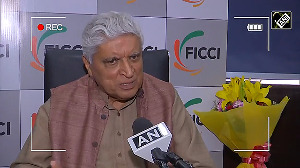Optimistic that the India-US nuclear deal will be passed in the current session of the US Congress, security expert Ashley Tellis on Thursday said the pact had become a 'bipartisan' effort as Republicans and Democrats realised strong relations need to be developed with India.
"The fact that India is a success story is becoming clear to people in America irrespective of political affiliation," Tellis, a senior associate at the Carnegie Endowment and consultant to the US State Department on the civil nuclear deal, said during a discussion on the agreement in New Delhi.
Over the past few months, the deal has 'garnered support from both Republicans and Democrats as they have realised India's importance in the emerging world scenario and both the parties want to court the Indian-American community, which has become a major force in US politics," said Mumbai-born Tellis.
"The Congressional elections are just a stepping stone for the bigger Presidential polls in 2008 and both parties want to court the Indian-American community," he said, adding: "A country that is still poor is remarkably peaceful and conducts itself in accordance with US values. Irrespective of who is in office, this shapes US minds."
The Indian democracy, though 'muddy,' cannot be ignored, specially when it is surrounded by unstable countries and the deal is just the stepping stone for a 'broad Indo-US relationship in times to come,' he said.
"We have a lot of work ahead of us. There are differences but none that are unmanageable," he said, listing the relationship with Pakistan and the Iran issue as two major points of divergence between New Delhi and Washington.
"While with Pakistan the issue is how it needs to be engaged by US...in relation to Iran, India has security concerns in the region and US takes it as a challenge."
Allaying fears on amendments being introduced in the deal, he said this 'was part of the democratic process of the US' and will in no way hamper the passage of the deal.
On Pakistan demanding a similar agreement, Tellis said, "India is a unique case. It is the only country, which meets all the criteria and also has huge energy needs."





